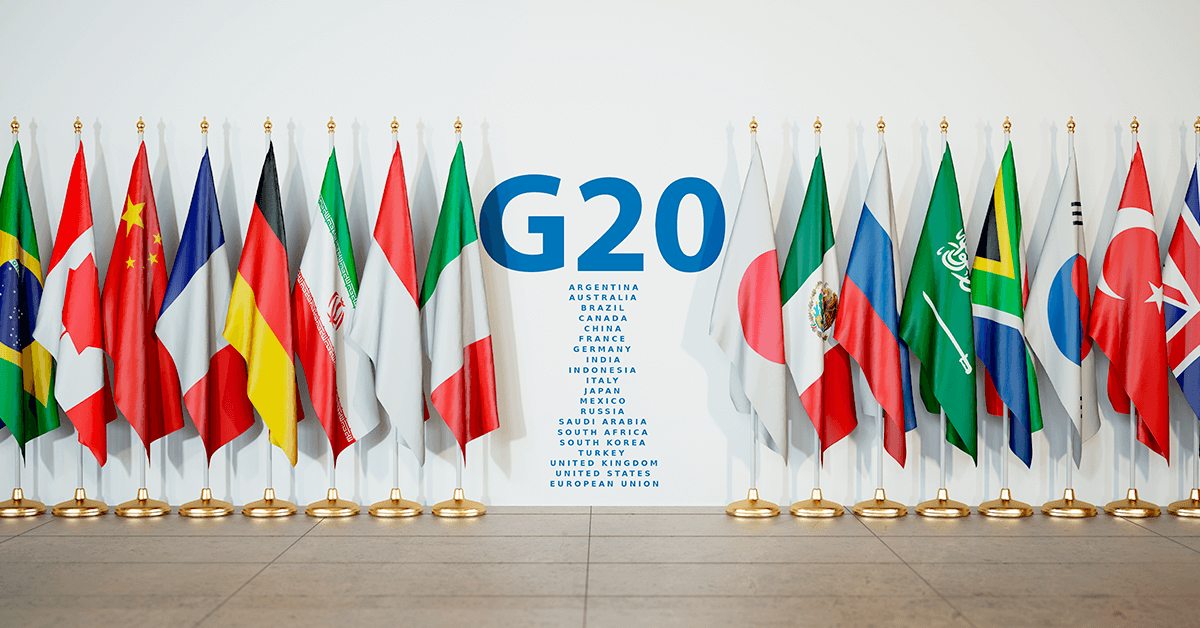As Brazil prepares to hand over the G20 presidency to South Africa, the international economic forum is set to introduce a bold new initiative aimed at lifting 500 million people out of poverty by 2030. The initiative reflects the G20’s growing recognition of the interconnectedness between economic inequality and global challenges such as climate change, which remains a critical concern for South Africa and other nations.
A Groundbreaking Poverty Reduction Plan
The G20’s ambitious poverty reduction goal is part of a larger effort to address the widening gap between rich and poor, particularly in developing countries. Under the leadership of Brazil, the forum has focused on fostering economic recovery post-pandemic, with significant emphasis on sustainable development and inclusive growth. The new initiative seeks to address the challenges faced by over half a billion people living in extreme poverty, particularly in regions most affected by global economic disruptions and climate-related events.
The plan includes an integrated approach combining economic support with social programs, job creation, and enhanced access to education and healthcare. The strategy also aims to empower marginalized communities, including women and youth, through targeted investment in infrastructure, social services, and economic opportunities. By focusing on these key areas, the G20 hopes to achieve significant strides in reducing poverty rates across the globe.
South Africa’s Role in Advancing the Agenda
As the G20 presidency transitions to South Africa, the country is poised to bring its unique perspective on poverty and climate change to the forefront of the discussions. South Africa, one of the world’s most unequal societies, faces significant internal poverty challenges, making it a natural advocate for initiatives that focus on sustainable development and poverty alleviation.
South African President Cyril Ramaphosa has already committed to making the fight against poverty and inequality a central issue during the nation’s tenure. “Our presidency will focus on people, the planet, and prosperity. We will seek to work towards a more inclusive global economy, ensuring that no one is left behind,” Ramaphosa stated in a recent address. South Africa’s leadership will be crucial in forging consensus on the G20’s poverty reduction goals, while aligning these efforts with global climate change commitments.
The Climate Crisis: A Key Factor in Poverty and Economic Inequality
The link between poverty and climate change is becoming increasingly apparent. As global temperatures rise, extreme weather events, droughts, and floods are disproportionately affecting the world’s poorest populations. South Africa, along with many other developing nations, faces growing pressure to address both poverty and climate change in tandem.
In addition to poverty reduction, the G20’s agenda under South Africa’s presidency is likely to include stronger commitments to climate adaptation and resilience. By integrating climate considerations into economic development plans, South Africa aims to promote a green economy that can create jobs while reducing vulnerability to climate impacts. This could involve expanding renewable energy, improving climate-resilient infrastructure, and increasing financial support for climate adaptation in developing countries.
Global Cooperation and the Need for Immediate Action
The success of the G20’s poverty reduction initiative will depend on global cooperation, particularly in addressing systemic issues like international debt, trade imbalances, and equitable access to resources. While the G20 represents the world’s largest economies, the participation of developing nations is crucial for ensuring that the poverty alleviation plan benefits all countries, not just the wealthiest.
International organizations, including the United Nations and the World Bank, are expected to play key roles in supporting these efforts. Collaborative action will be necessary to mobilize funding for poverty reduction and climate change adaptation. As the G20 begins to focus more on these issues, there is hope that a concerted, multi-stakeholder approach can help address the root causes of poverty and create lasting, systemic change.
Challenges Ahead and the Road to 2030
Despite the ambitious goals set by the G20, achieving the target of lifting 500 million people out of poverty by 2030 remains a monumental task. Economic inequality, political instability, and environmental challenges will likely hinder progress, especially in regions most affected by conflict or climate change. However, the alignment of poverty alleviation with climate action provides an opportunity to address two of the world’s most pressing challenges simultaneously.
Looking ahead, the G20’s efforts under South Africa’s leadership will require a balance between economic growth and environmental sustainability, with a focus on long-term solutions rather than short-term fixes. The global community will need to remain committed to these goals, as the scale of poverty and climate crises demands urgent and sustained action.
Conclusion
As Brazil passes the G20 presidency to South Africa, the international community faces a critical moment to address both poverty and climate change through a unified, sustainable approach. With an ambitious goal to lift 500 million people out of poverty by 2030, the G20’s new initiative holds promise for significant global change. However, achieving these goals will require unwavering international cooperation and bold action to tackle the intertwined challenges of inequality and environmental degradation.



